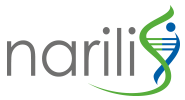The NucleoGlio Project secures €2.2 million in funding from Wallonia for early detection of glioblastomas
Belgian Volition, QUALIblood, UNamur (NARILIS) and UCLouvain (IREC), working together as a consortium, have been granted €2.2 million in funding from Wallonia through a BioWin call for projects. Their collaborative research project, called NucleoGlio, is scheduled to operate for 48 months with a total budget of € 3.1 million. The project aims to investigate the potential of liquid biopsy for the early detection of glioblastoma, a highly aggressive form of brain cancer.
Glioblastomas represent a major clinical challenge, particularly when recurrence occurs after surgical resection. Focusing on a non-invasive liquid biopsy, the NucleoGlio team strives to improve the initial diagnosis and recurrence of glioblastoma, as well as to advance personalized treatment approaches. The strategy relies on the analysis of circulating nucleosomes and their epigenetic modifications, which are released into the blood or other biofluids, making them promising candidates as biomarkers for glioblastoma. The project will be implemented in two phases. Initially,the team will work with cell and/or mouse models of glioblastoma to identify epigenetic modifications of nucleosomes that might be associated with the disease. Subsequently, they will explore the presence of these markers in blood or cerebrospinal fluid samples from glioblastoma patients. This work will provide a proof of concept for the development of a diagnostic test.
The project is being coordinated by Dr. Marielle Herzog, R&D Director of Belgian Volition, a multi-national epigeneticscompany. Their patented Nucleosomics™ technology will be used to isolate circulating nucleosomes and to monitor epigenetically modified nucleosomes.
Prof. Jonathan Douxfils, CSO and Founder of QUALIblood, will contribute to the project with his expertise in developing ultra-sensitive detection tools for blood biomarkers. In the case of glioblastoma, circulating nucleosomes carrying specific epigenetic modifications are expected to be present at very low concentrations and will require the design of highly sensitive methods.
Another partner of the consortium is Prof. Lionel D’Hondt, medical oncologist at the CHU UCL Namur, who will contribute his clinical expertise to the project and facilitate access to clinical samples.
This ambitious project is the subject of the doctoral thesis of Jonathan Decarpentrie, enrolled since October 2022 in a joint PhD programme at UNamur and Belgian Volition, under co-supervision of Prof. Jonathan Douxfils and Dr. Marielle Herzog. The first results of his work were recently presented at three prominent international conferences: the 2023 SNO/ASCO CNS Cancer Conference in San Francisco, the 2023 SNO Annual Meeting in Vancouver and the ESMO Congress 2023 in Madrid. To learn more about Jonathan Decarpentrie's work, please read his conference abstract “Cell line study of nucleosome-based biomarkersin the diagnosis and detection of relapses in glioblastoma”, published in the journal of the Society for Neuro-Oncology, and watch his interview during the ESMO Congress 2023 in Madrid.
The team is currently seeking a highly motivated laboratory technician to join them and contribute to this groundbreaking research (see job offer).
Contacts
BelgianVolition : Marielle Herzog – m.herzog@volitionrx.com
QUALIblood : Jonathan Douxfils – jonathan.douxfils@qualiblood.eu
UNamur: Jonathan Decarpentrie – jonathan.decarpentrie@unamur.be
UCLouvain/IREC: Lionel D’Hondt – lionel.dhondt@chuuclnamur.uclouvain.be
Read also the BioWin release
 NAmur Research Institute for LIfe Sciences
NAmur Research Institute for LIfe Sciences


